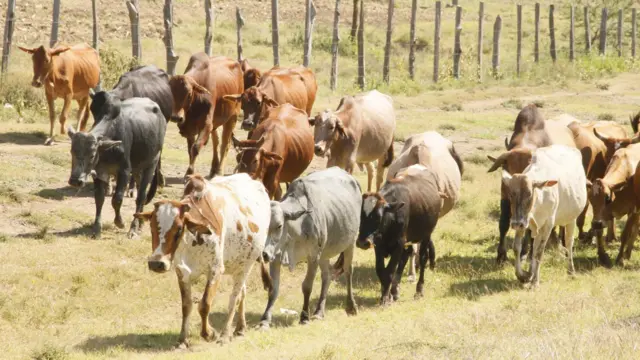Kenya’s livestock industry — a vital pillar of the country’s economy and food system — could soon receive a major boost through new partnerships and investment opportunities with the United States agricultural sector. The initiative, led by CABI with support from the US Department of Agriculture’s Foreign Agricultural Service (USDA FAS), seeks to identify key areas where collaboration can strengthen Kenya’s livestock value chain and enhance national food security.
The project aims to support millions of smallholder farmers whose livelihoods depend on livestock production. Nearly half of Kenya’s agricultural workforce is employed in the livestock sector, which contributes close to USD $1 billion annually and supports around 5 million households. Kenya’s herders and farmers collectively manage nearly 16 million cattle, 19 million sheep, 28 million goats, 4.6 million camels, and 39 million chickens, along with other livestock and beekeeping enterprises.
Despite its economic significance, the sector remains largely informal and underdeveloped, facing challenges such as limited market infrastructure, inadequate animal health systems, and low productivity. CABI’s research focuses on identifying where targeted US investments — in genetics, feed production, processing, and value addition — could unlock greater efficiency and profitability.
According to Dr. Lorna Migiro, Senior Scientist at CABI’s Regional Centre for Africa, the project’s first phase analyzed key sub-sectors including dairy, beef, mutton, chevon, poultry, pork, camel, and honey.
“Our findings highlight critical gaps in both the beef and dairy sectors,” Dr. Migiro noted. “Beef production suffers from low offtake rates and seasonal supply, while the dairy sector faces hygiene, feed, and fertility management challenges that reduce milk quality and yields.”
The next phase will involve surveys, stakeholder consultations, and focused discussions within the dairy value chain to pinpoint viable opportunities for investment, trade, and collaboration. These efforts aim to modernize production systems, improve market linkages, and ensure Kenyan livestock producers can compete effectively in both domestic and export markets.
By connecting local producers with international expertise and financing, this initiative could mark a turning point — helping Kenya build a resilient, high-value livestock industry capable of meeting growing food demand while creating sustainable rural employment.



